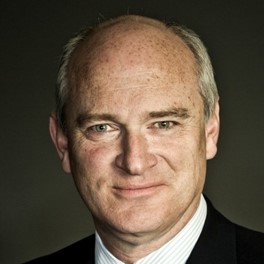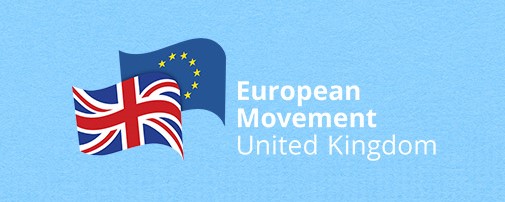
The hypocrisy of Tommy Robinson and his fans
A squalid tale of grift and dishonesty as ‘Tommy Robinson’ is detained for immigration offences yet again, writes Bremain Vice Chair Lisa Burton for Yorkshire Bylines.
Last week, Tommy Robinson, real name Stephen Yaxley-Lennon, the far-right activist, was arrested in Canada for an ‘outstanding immigration warrant’ after speaking at an event in Calgary. Within an hour, a fundraiser was launched in his name, not for the first time, to help him out with his many run-ins with the law.
His team filmed his arrest, with Robinson heard telling the officers in the police car: “Ain’t it mad how tough you get with immigration on the wrong people?”, “F*** Justin Trudeau” and “It’s mental innit. You act like absolute spineless cowards as a country, letting every bloody goddamn f**ing Abdul or whoever into your country – you don’t know nothing about them, their criminal histories, or anything, or their ideologies”.
It is a bit rich considering this wasn’t the first time Robinson has faced charges of immigration offences, and he has a lengthy criminal record, which bars him from entering many countries. In 2013, he pled guilty to trying to enter the United States illegally by using a friend’s passport. It’s just one of Robinson’s criminal convictions, amongst others for passport offences, mortgage fraud, contempt of court and assault. He’s served jail time on more than one occasion.
What the paperwork shows
What was different this time was that Robinson himself posted his immigration arrest documents online, which showed some curious anomalies. According to these documents, his name is Stephen Lennon, and not only is he an Irish citizen, but they also state he was born in Ireland.
Considering Robinson prides himself on English nationalism, is an anti-immigrant campaigner, and rallies against the criminal behaviour of people he deems ‘migrants’, who are often British-born people of colour, the double standards seemed to be obvious. So I posted the form on X with a comment.
Well, well. Tommy Robinson has only gone and posted his immigration arrest documents from Canada which show he is, in fact, an Irish citizen. So, he's an immigrant who identifies as English?🙃 pic.twitter.com/QsJRHXaqVz
— Lisa Burton 🏴🇪🇺 (@burtonlisa) June 28, 2024
The post took off and incredibly gained over 2.2 million impressions, driven mainly by a mass frenzy of his supporters who were unwilling to see or just blind to the fact that it is ok for their criminal idol to break immigration laws or to lie to illegally enter a country, to be an immigrant with a criminal record, all while demonising migrants, and many he categorises and migrants, even though they are British-born people who by their heritage don’t have the ‘privilege’ of being white.
Born in Ireland or England?
Now, it’s no secret that Robinson’s mother was Irish and his father is English. So, he is wholly entitled to an Irish passport, as are many with Irish ancestry. This was the main shouting point of many of his followers who didn’t quite understand the ‘born in Ireland’ hypocrisy. Because what’s really interesting is that Robinson has always said he was born in Luton, England, and he is English. He confirmed this in an interview article in the Telegraph from 2013 and on other occasions.
Below is a birth registry document for November and December 1982. You can see the entry for Stephen Christopher Yaxley, born in Luton. He later became Yaxley-Lennon to reflect the name of his stepfather, Thomas Lennon. Sometimes, he also goes by Stephen Lennon. However, in 2018, a judge reported at this hearing that his legitimate passport bears the name Paul Harris. Confused yet?
Of course, we don’t know the details of his current British passport. And there’s always a possibility that the immigration officers in Canada made an error on the arrest paperwork, and he has not yet been to court, but it’s unlikely. Robinson has form for entering countries where his criminal record would bar him from doing so, and he was heading to Canada for a tour.
Still, we can all agree it is not customary to have multiple names for no reason unless you’re trying to hide something. This leads us to conclude that this passport and identity confusion is deliberate. One passport states he is an Irish national and citizen, born in Ireland, and his name is Stephen Lennon. The other passport has a different name and we must assume, from his birth records, that it would state he is a British national born in Luton.
The most likely hypothesis is that he uses different passports to try and get past immigration officials and to avoid revealing his criminal convictions or previous immigration offences.
The hypocrisy doesn’t stop there
Research tells us that the majority of grooming gangs are white. However, there is far more manufactured outrage around sexual exploitation if the person or persons are of a minority background, and Robinson and other actions of the media have ensured that fallacy perpetuates.
He says he’s an advocate against sexual violence and exploitation of women and girls, particularly from grooming gangs (only if they are brown-skinned, of course). He is not. He has a long history of failing to condemn the abuse of children by his friends and supporters. Something, when pointed out to his sycophants, they also choose to ignore.
As reported here, “The EDL was a hotbed of sex offenders”. At least 20 members and supporters were convicted of child sexual exploitation offences (that we know of), and at least 10 of these were in the EDL while Robinson was still leading it. In June 2010, Lennon’s close friend and ally, Richard Price, was convicted of making indecent images of children. Far from condemning those crimes, the EDL launched a campaign for his release.
Leigh Mcmillan, a senior EDL figure during Lennon’s time as leader who was active in the Lee Rigby campaign, was sentenced to 17 years after abusing a 10-year-old schoolgirl 100 times in the mid-1990s. The list of offences is shocking and can be read here. No condemnation has been noted from Robinson regarding any of these cases.
Robinson has also defended Andrew Tate, the online media personality who is currently facing charges of rape and people trafficking.
Like all far-right ideologists, his support for illegal behaviour from his own tribe is typical behaviour. Blame others. Say it’s all a conspiracy. It gives them a blank card to deny everything and to corrupt all truth and evidence. It’s a vital part of their playbook, no matter how unhinged, and Robinson sounds completely unhinged.
🚨🚨 Tommy Robinson goes MAD defending Andrew Tate (watch to the end) pic.twitter.com/utJCw0aDr5
— Gadget (@Gadget44027447) July 1, 2024
Robinson, the Brexit supporter
Robinson campaigned for Brexit and received financial, political, and moral support from a wide array of foreign groups and individuals, including US think tanks, right-wing Australians, and Russian trolls. He campaigned for the end of freedom of movement while obtaining or already having an Irish passport, knowing he would never have to give up his freedom of movement. It is also rumoured that he lives in Spain.
There’s nothing wrong with that, his supporters would say. Of course, they would. Foreign interference when it backs their far-right causes is welcome; Obama speaks up about Brexit, and all hell breaks loose; but they have no issues if their false idol has the opportunities he wanted to deny his fellow compatriots
Bethan Nodwell exposes Robinson’s behaviour in Canada
Tommy Robinson went to Canada to ‘go on tour’, and Bethan Nodwell, a right-wing political activist, was going to assist him. So often, we see people willing to overlook alleged wrongdoing.
I'm sorry you had to see this first-hand to believe it @BethanNodwell. Good on you for calling it out.
This is what we tried to protect #TommyRobinson fans from for years, and we paid the price for it behind the scenes mentally, physically and spiritually.
It wasn't just the… pic.twitter.com/uW6S7b9ESC
— Lucy Brown (@lucymarionbrown) June 26, 2024
She alleges Robinson was drunk, taking cocaine, and went to massage parlours. She makes implications related to Robinson’s apparent hypocrisy as a proclaimed defender of women and girls. “If you are doing drugs with prostitutes, you aren’t defending women.” “Who are running these brothels […] who are they exploiting? Like marginalised, maybe some white girls, some minority girls.” “You’re actually betraying us; you’re betraying my girls.”
In the clip above, she also alleges that Robinson says he had sold no tickets for his tour and said he “was going to get nicked”, which she ties to getting money from his supporters. Robinson has subsequently denied these allegations.
Robinson is no patriot
So, there we have it laid out. Stephen Christopher Yaxley-Lennon, aka Stephen Lennon, Tommy Robinson, Paul Harris or any other name he goes by, is a hypocrite of the highest order. A common thug and criminal who uses his ‘Englishness’ as a weapon to fuel racism, bigotry and the persecution of minorities while milking his supporters and relying on foreign money to fund his lifestyle and politics.
He is a dangerous individual whose organised marches often end in violence, including violence against the police, like with the Cenotaph demonstrations he initiated then ran away from last year, where the protesters chanted “you’re not English any more” at officers and attacked them.
They’re mindless thugs, just like the men who radicalised them.
Here’s looking at you, Nigel Farage, Tommy Robinson & Boris Johnson. #farright #cenotaph #TommyRobinson #NigelFarage #BorisJohnson
pic.twitter.com/laFlcaCL8R— Miffy (@miffythegamer) June 13, 2020
With luck, the UK and Irish authorities will look into these anomalies, and who knows, maybe one of them will deem him to be a danger to the country, just like the British government did with Shamima Begum on national security grounds. She only had British citizenship, Tommy many names has at least two. He can take it.












